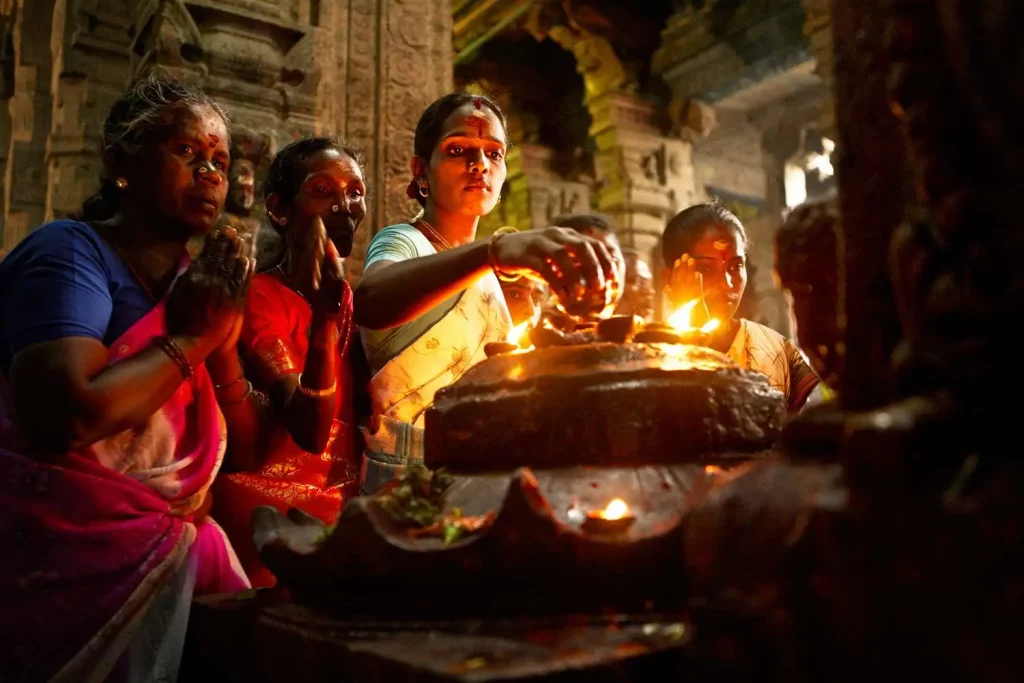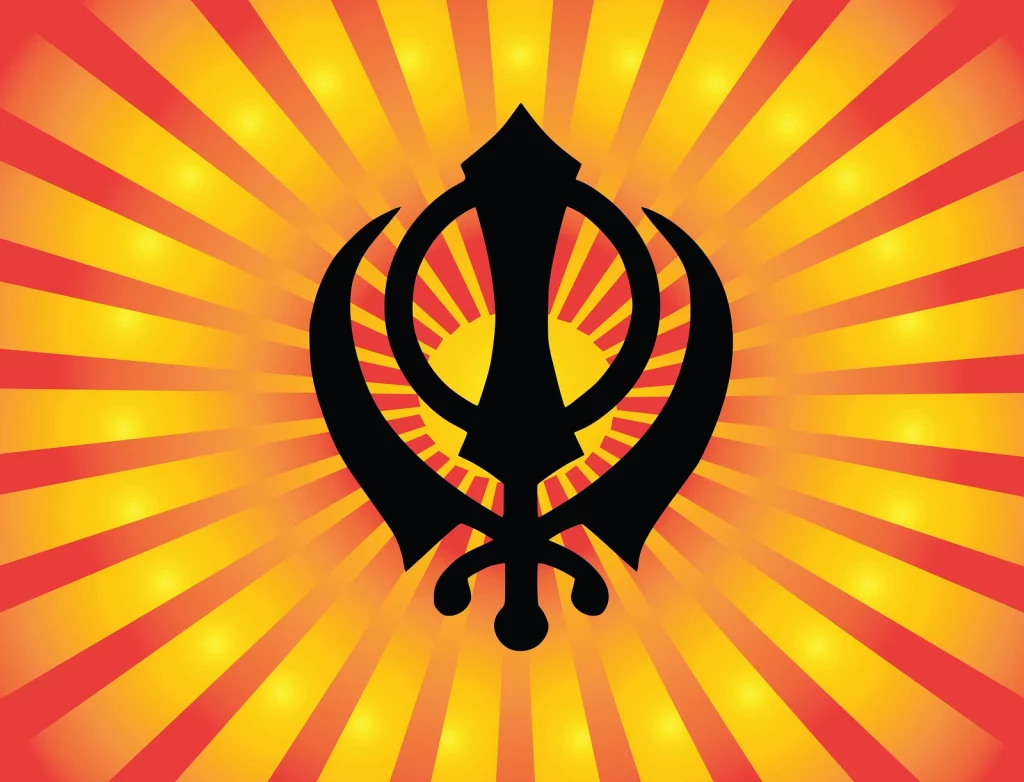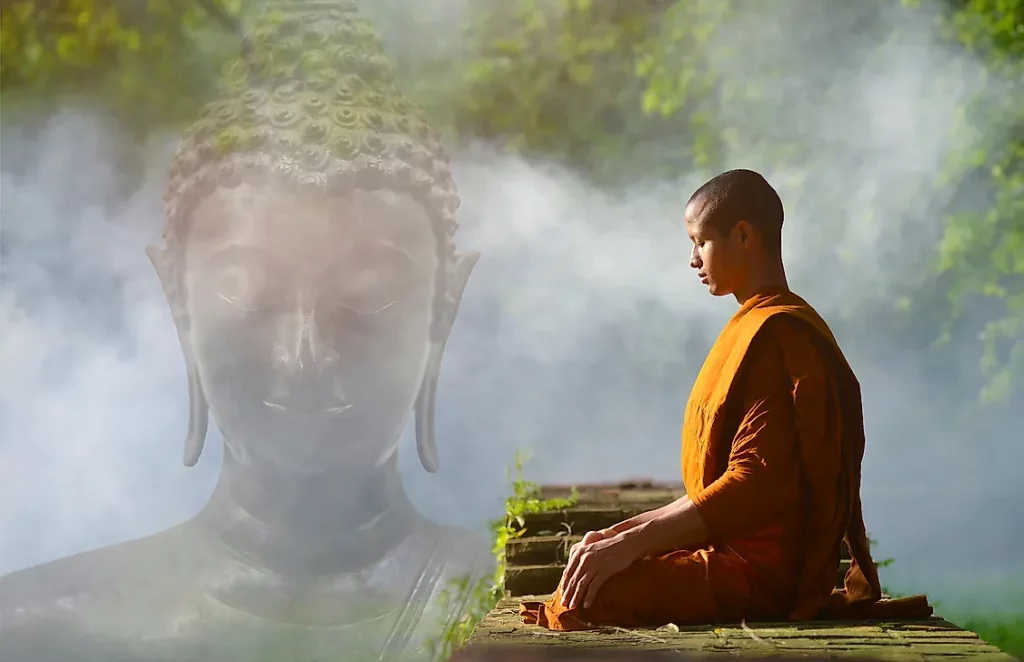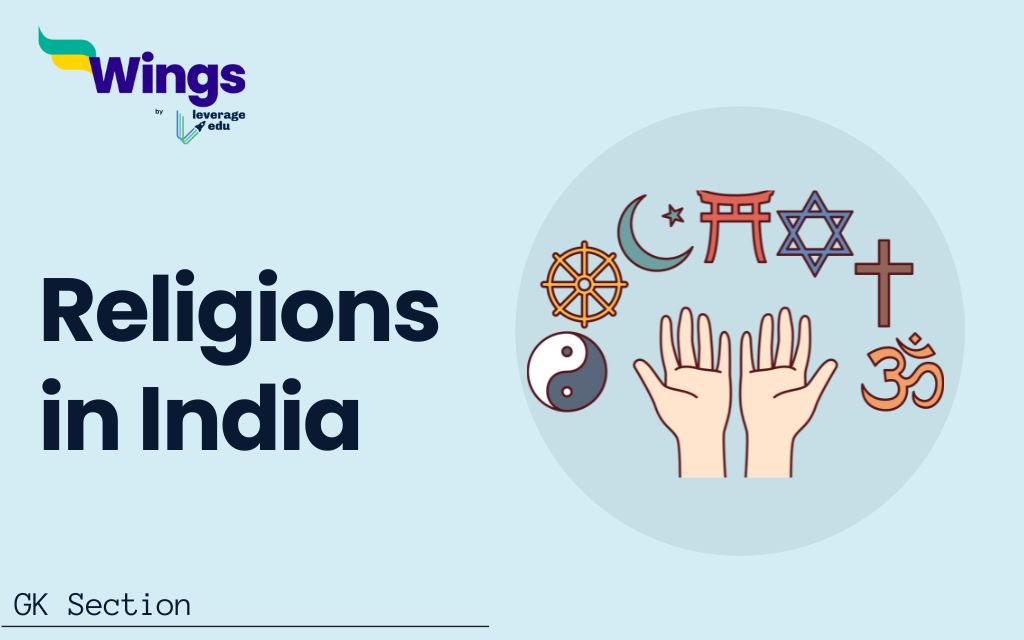India is a diverse and secular country where people of different religions respect one another. These religions have been at the very core of India, where the vast majority of people practice Hinduism. Other religions practiced here include Islam, Sikhism, Buddhism, Jainism, and Christianity. In recent years, many communities have undergone significant changes and growth. In this section, we will discuss the religions in India. This is also a major part of the art and culture sections of various competitive exams, including, UPSC, SSC and EPFO. This will also help students learn about the religious diversity of their nation. Continue reading to learn more!
Hinduism
Hinduism is considered the oldest religion in the world, having originated in the Indian subcontinent. Hinduism originally dates back to 1500 BCE and is deeply rooted in the Vedic traditions of India.

- Hinduism has its core belief in the supreme being, Brahman.
- This religion is mainly known for its concepts of Dharma, Karma and Moksha. According to Hinduism, the cycle of rebirth (samsara) is influenced by one’s actions in life (Karma).
- Hinduism has many respectable gods and goddesses, with the most important being Lord Brahma, Lord Vishnu, and Lord Shiva. Goddesses like Saraswati Ji, Lakshmi Ji and Durga Ji are widely worshipped in this religion.
- Hindu practices include various rituals, meditation, yoga, visits to pilgrimage sites, chanting prayers and mantras and celebration of festivals such as Holi and Diwali.
- The Vedas and the Upanishads are the most sacred scriptures for Hindus. Other prominent holy books are the Mahabharata, Ramayana and the Bhagvad Gita.
- The caste system has influenced Hindu society, which is structured according to the person’s occupation.
Also Read: Difference Between Buddhism and Hinduism
Islam
Islam was introduced in India during the 7th century through trade or foreign invasions. Later, it got influenced by the Mughals, which established Islam as a significant religion in India.

- Islam believes in one god, Allah and emphasizes the teachings of their last prophet, Prophet Muhammad.
- Muslims follow the Five Pillars of Islam: Shahada (faith), Salat (prayer), Zakat (charity), Sawm (fasting during Ramadan), and Hajj (pilgrimage to Mecca).
- Islam is majorly divided into two sects: Sunni and Shia. Sunni Muslims are the majority, while Shia Muslims are a minority.
- Sufi Islam, known for its devotion, has a strong presence in India.
- Islam has influenced Indian culture, architecture, language and cuisine. Festivals like Eid al-Fitr and Eid al-Adha are celebrated with great fervor across the country.
Christianity
Christianity is believed to have arrived in India with St. Thomas the Apostle in the 1st century CE. This religion gained importance during the colonial period under Portuguese, Dutch, French, and British rule.

- Christinaity follows the teachings of Jesus, who is believed to be the son of God.
- The Bible is the holy book of the christians and their key practices include church services, prayer and observances like baptism. Christmas and Easter are major Christian festivals celebrated
- Christianity in India is diverse, with many denominations such as Roman Catholicism, Protestantism, and Eastern Orthodoxy.
- The Syrian Christians of Kerala are one of the oldest Christian communities in the world.
- Christian missionaries have played an important role in education and health care as they have established various schools and hospitals. Christian social work and charitable activities have also been prominent.
Sikhism
Sikhism was founded in the late 15th century by Guru Nanak in the Punjab region. This religion promotes equality, social justice and devotion to one god. Sikhism rejects casteism and encourages direct relationship with God.

- The core beliefs of Sikhism revolve around the teachings of ten Sikh gurus. Guru Granth Sahib is their holy book.
- This religion focuses on the service of others, honest living and Naam Japana. Sikh practices include daily prayers, community service and participation in the Guru’s langar.
- They follow the 5 Ks: Kesh (uncut hair), Kara (steel bracelet), Kanga (wooden comb), Kachera (cotton undergarment), and Kirpan (ceremonial sword).
- Sikh places of worship are known as Gurudwaras. Gurudwaras serve free community meals to all, regardless of religion or background.
Buddhism
Buddhism originated in India in the 6th century BCE with the teachings of Siddhartha Gautama, also known as Buddha. It flourished in India but its presence declined after the 12th century.

- Buddhism follows the Four Noble Truths and the Eightfold Path, which guide individuals to overcome suffering and achieve nirvana.
- Buddhists do not worship God but follow the teachings of Buddha.
- In India, there are two schools of Buddhism: Theravada and Mahayana. Theravada focuses on individual intelligence, while Mahyana focuses on Boddhisattava.
- Buddhism experienced a revival in India in the 20th century with the movement led by Dr. B.R. Ambedkar, who converted to Buddhism as a rejection of caste systems.
Also Read: History of Zoroastrianism – Religion in India
Jainism
Jainism is an ancient religion that dates back to the 7th–5th centuries BCE. It was established by a series of 24 Tiranthakaras. Mahavira is considered the founder of the modern Jain community.

- Jainism follows the principles of non-violence (Ahimsa), truth (Satya), non-stealing (Asteya), chastity (Brahmacharya), and non-possession (Aparigraha).
- Jains believe in the cycle of birth and death and achieving liberation through self-discipline.
- Jains practice strict vegetarianism and observe festivals like Paryushana and Mahavir Jayanti. Jain temples, which are known for their architecture, are the center of worship.
- Jainism has significantly influenced Indian philosophy, art, and culture.
Other Religions in India
There are other religions in India that are followed by the people of India. Some of these religions are mentioned below.
- Zoroastrianism: It is also known as Parsiism which dates back to the 7th century. The religion is based on the teachings of the prophet Zoroaster. This religion is known for its contributions to the Indian industry, culture, and philanthropy.
- Judaism: Judaism is associated with the Jewish community, which dates back around 2,000 years. Indian Jews have preserved their religion, even in small numbers.
- Bahá’í Faith: The Bahá’í Faith was founded in the 19th century. India also has some of the Bahá’í temples, such as the Lotus Temple in New Delhi, which is a symbol of peace and unity.
Related Posts
| How Many Stages in UPSC Exam? | How to Prepare History for UPSC? |
| 13 Interesting Facts About Indian Culture | Vedic Period: A Sacred Chapter of Indian History |
| Right to Freedom of Religion in India | UPSC Prelims Eligibility Criteria |
| Shramana Tradition | Who Is The Founder of Buddhism? |
FAQs
There are four major religions in India: Hinduism, Sikhism, Islam and Christianity.
Hinduism is considered the oldest religion in the world, having originated in the Indian subcontinent. Hinduism originally dates back to 1500 BCE and is deeply rooted in the Vedic traditions of India.
Islam was first introduced in India through the Arab invasion of Sind. Later, it got influenced by the Mughals, which established Islam as a significant religion in India.
This was all about the “Religions of India”. For more such informative blogs, check out our UPSC Exams Section and Study Material Section, or you can learn more about us by visiting our Indian exams page.


 One app for all your study abroad needs
One app for all your study abroad needs












 60,000+ students trusted us with their dreams. Take the first step today!
60,000+ students trusted us with their dreams. Take the first step today!